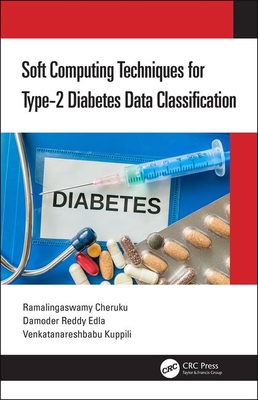Ensemble Methods in Data Mining: Improving Accuracy Through Combining Predictions (Paperback)
暫譯: 數據挖掘中的集成方法:通過結合預測提高準確性 (平裝本)
Giovanni Seni, John Elder
- 出版商: Morgan & Claypool
- 出版日期: 2010-02-24
- 售價: $1,440
- 貴賓價: 9.5 折 $1,368
- 語言: 英文
- 頁數: 126
- 裝訂: Paperback
- ISBN: 1608452840
- ISBN-13: 9781608452842
-
相關分類:
Data-mining
海外代購書籍(需單獨結帳)
買這商品的人也買了...
-
 Word 排版藝術
Word 排版藝術$620$490 -
 鳥哥的 Linux 伺服器架設篇, 2/e
鳥哥的 Linux 伺服器架設篇, 2/e$780$663 -
 C++ Primer, 4/e (中文版)
C++ Primer, 4/e (中文版)$990$891 -
 現代嵌入式系統開發專案實務-菜鳥成長日誌與專案經理的私房菜
現代嵌入式系統開發專案實務-菜鳥成長日誌與專案經理的私房菜$600$480 -
 CCNA: Cisco Certified Network Associate Study Guide (Exam 640-802), 6/e
CCNA: Cisco Certified Network Associate Study Guide (Exam 640-802), 6/e$1,910$1,815 -
 資料結構─使用 C 語言實作
資料結構─使用 C 語言實作$560$437 -
 深入淺出 C# (Head First C#)
深入淺出 C# (Head First C#)$980$774 -
 攝影構圖密技-輕鬆拍出異國風
攝影構圖密技-輕鬆拍出異國風$399$339 -
 Flash ActionScript 程式大亂鬥-經典商業範例集 ActionScript 3.0 VS ActionScript 2.0
Flash ActionScript 程式大亂鬥-經典商業範例集 ActionScript 3.0 VS ActionScript 2.0$680$578 -
 Java 認證 SCJP 6.0/5.0 猛虎出閘
Java 認證 SCJP 6.0/5.0 猛虎出閘$680$537 -
 XOOPS 2.3 架站王:快速架設、佈景主題、外掛模組
XOOPS 2.3 架站王:快速架設、佈景主題、外掛模組$480$408 -
 程式設計師面試寶典
程式設計師面試寶典$400$316 -
 PHP + MySQL 動態網站開發
PHP + MySQL 動態網站開發$480$408 -
 iPhone SDK 3 Programming 應用程式開發
iPhone SDK 3 Programming 應用程式開發$420$277 -
 程式設計師的自我修養-連結、載入、程式庫
程式設計師的自我修養-連結、載入、程式庫$580$493 -
 Google API 大全-程式設計、開發、實例
Google API 大全-程式設計、開發、實例$580$458 -
 Google Android SDK 開發範例大全 2
Google Android SDK 開發範例大全 2$890$757 -
 Vegas Pro 9 影音特效製作精粹
Vegas Pro 9 影音特效製作精粹$490$387 -
 雲端策略 : 雲端運算與虛擬化技術
雲端策略 : 雲端運算與虛擬化技術$420$332 -
 $990Adobe Dreamweaver CS5 Classroom in a Book (Paperback)
$990Adobe Dreamweaver CS5 Classroom in a Book (Paperback) -
 $1,089Adobe Flash Catalyst CS5 Classroom in a Book (Paperback)
$1,089Adobe Flash Catalyst CS5 Classroom in a Book (Paperback) -
 Orange's 一個作業系統的實現
Orange's 一個作業系統的實現$580$458 -
 約耳續談軟體-探究軟體經營的根本實學 (More Joel on Software: Further Thoughts on Diverse and Occasionally Related Matters That Will Prove)
約耳續談軟體-探究軟體經營的根本實學 (More Joel on Software: Further Thoughts on Diverse and Occasionally Related Matters That Will Prove)$490$417 -
 CCNA 模擬實戰演練
CCNA 模擬實戰演練$490$417 -
 美少女拍攝密技 99 個方法
美少女拍攝密技 99 個方法$320$199
商品描述
Ensemble methods have been called the most influential development in Data Mining and Machine Learning in the past decade. They combine multiple models into one usually more accurate than the best of its components. Ensembles can provide a critical boost to industrial challenges -- from investment timing to drug discovery, and fraud detection to recommendation systems -- where predictive accuracy is more vital than model interpretability.
Ensembles are useful with all modeling algorithms, but this book focuses on decision trees to explain them most clearly. After describing trees and their strengths and weaknesses, the authors provide an overview of regularization -- today understood to be a key reason for the superior performance of modern ensembling algorithms. The book continues with a clear description of two recent developments: Importance Sampling (IS) and Rule Ensembles (RE). IS reveals classic ensemble methods -- bagging, random forests, and boosting -- to be special cases of a single algorithm, thereby showing how to improve their accuracy and speed. REs are linear rule models derived from decision tree ensembles. They are the most interpretable version of ensembles, which is essential to applications such as credit scoring and fault diagnosis. Lastly, the authors explain the paradox of how ensembles achieve greater accuracy on new data despite their (apparently much greater) complexity.
This book is aimed at novice and advanced analytic researchers and practitioners -- especially in Engineering, Statistics, and Computer Science. Those with little exposure to ensembles will learn why and how to employ this breakthrough method, and advanced practitioners will gain insight into building even more powerful models. Throughout, snippets of code in R are provided to illustrate the algorithms described and to encourage the reader to try the techniques.
Ensembles are useful with all modeling algorithms, but this book focuses on decision trees to explain them most clearly. After describing trees and their strengths and weaknesses, the authors provide an overview of regularization -- today understood to be a key reason for the superior performance of modern ensembling algorithms. The book continues with a clear description of two recent developments: Importance Sampling (IS) and Rule Ensembles (RE). IS reveals classic ensemble methods -- bagging, random forests, and boosting -- to be special cases of a single algorithm, thereby showing how to improve their accuracy and speed. REs are linear rule models derived from decision tree ensembles. They are the most interpretable version of ensembles, which is essential to applications such as credit scoring and fault diagnosis. Lastly, the authors explain the paradox of how ensembles achieve greater accuracy on new data despite their (apparently much greater) complexity.
This book is aimed at novice and advanced analytic researchers and practitioners -- especially in Engineering, Statistics, and Computer Science. Those with little exposure to ensembles will learn why and how to employ this breakthrough method, and advanced practitioners will gain insight into building even more powerful models. Throughout, snippets of code in R are provided to illustrate the algorithms described and to encourage the reader to try the techniques.
商品描述(中文翻譯)
集成方法被稱為過去十年來數據挖掘和機器學習中最具影響力的發展。它們將多個模型結合成一個,通常比其組成部分中最好的模型更準確。集成方法可以為工業挑戰提供關鍵的提升——從投資時機到藥物發現,從詐騙檢測到推薦系統——在這些情況下,預測準確性比模型可解釋性更為重要。
集成方法對所有建模算法都很有用,但本書專注於決策樹,以便最清楚地解釋它們。在描述樹及其優缺點後,作者提供了正則化的概述——如今被理解為現代集成算法優越性能的關鍵原因。接下來,本書清楚地描述了兩個最近的發展:重要性抽樣(Importance Sampling, IS)和規則集成(Rule Ensembles, RE)。IS揭示了經典的集成方法——自助法(bagging)、隨機森林(random forests)和提升法(boosting)——是單一算法的特例,從而顯示如何提高它們的準確性和速度。RE是從決策樹集成中衍生出的線性規則模型。它們是集成方法中最具可解釋性的版本,這對於信用評分和故障診斷等應用至關重要。最後,作者解釋了集成方法如何在新數據上實現更高準確性的悖論,儘管它們的(顯然更大的)複雜性。
本書旨在針對初學者和高級分析研究人員及實踐者——特別是在工程、統計和計算機科學領域。對集成方法接觸不多的人將學習為什麼以及如何使用這一突破性方法,而高級實踐者將獲得構建更強大模型的洞見。在整個過程中,提供了R語言的代碼片段,以說明所描述的算法並鼓勵讀者嘗試這些技術。






























